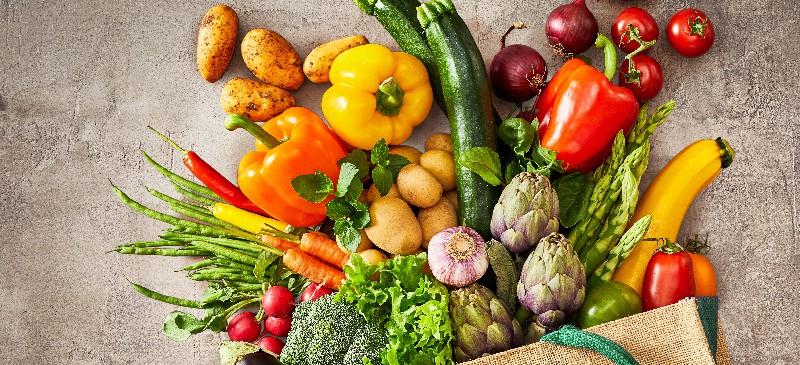
How to find organic food
, by saikat dutta, 5 min reading time

, by saikat dutta, 5 min reading time
In today's health-conscious world, the demand for organic food has skyrocketed. As consumers become more aware of the benefits associated with organic eating, the quest for high-quality, organic produce has become paramount. If you're wondering how to find organic food that meets your standards, you've come to the right place. In this guide, we will explore effective strategies and tips on how to find organic food, ensuring you make informed choices for your health and well-being.
Before we dive into how to find organic food, it's essential to understand what organic food truly is. Organic food is produced without the use of synthetic fertilizers, pesticides, or genetically modified organisms (GMOs). This farming method not only promotes environmental sustainability but also enhances the nutritional value of the food we consume. By choosing organic, you are opting for a healthier lifestyle and supporting sustainable agricultural practices.

One of the best ways to find organic food is to visit local farmers' markets. These markets are often brimming with fresh, seasonal produce that is grown by local farmers who prioritize organic methods. Engaging with farmers directly allows you to ask questions about their growing practices and ensures you are purchasing authentic organic products. To find organic food at these markets, simply look for stalls that display organic certification or ask the vendors about their farming practices.
Community Supported Agriculture (CSA) programs offer a unique opportunity to access fresh organic produce directly from local farms. By subscribing to a CSA, you receive a weekly or bi-weekly box of seasonal fruits and vegetables, often harvested just hours before delivery. This not only supports local agriculture but also provides you with a consistent supply of organic food. To find organic food through a CSA, research local farms in your area and inquire about their subscription options.
In our digital age, technology can be a valuable ally in your quest for organic food. Numerous websites and mobile apps are dedicated to helping consumers locate organic products nearby. By searching for terms like "how to find organic food" online, you can discover platforms that list organic stores, farmers' markets, and CSAs in your vicinity. Additionally, some apps allow you to scan barcodes to verify the organic status of products while shopping.
Health food stores are a treasure trove of organic food options. These establishments typically focus on providing natural and organic products, making it easier to find what you're looking for. When exploring these stores, look for products labeled with the USDA Organic seal, which guarantees that the food meets the strict standards set for organic farming. Staff members at these stores are often knowledgeable about their products and can guide you on how to find organic food that suits your dietary needs.
Another effective way to learn how to find organic food is by joining online communities and forums dedicated to organic living. These platforms allow you to connect with like-minded individuals who share tips, resources, and recommendations on where to find organic food. Engaging in discussions can provide you with valuable insights and help you discover hidden gems in your area.
Understanding the seasonal availability of organic produce can significantly enhance your ability to find organic food. Different fruits and vegetables thrive during specific seasons, and knowing when they are at their peak can help you make informed purchasing decisions. Seasonal produce is often fresher and more affordable, making it a great choice for your organic diet. Research local growing seasons and plan your meals around them to maximize your access to organic food.
When shopping for organic food, it’s crucial to familiarize yourself with the various labels and certifications that indicate a product's organic status. In the United States, the USDA Organic seal is the most recognized certification, ensuring that the product has met rigorous organic farming standards. Additionally, pay attention to labels that indicate whether a product is 100% organic, made with organic ingredients, or contains a specific percentage of organic content. This knowledge will empower you to make informed choices and help you find organic food that aligns with your values.
Building relationships with local farmers can significantly enhance your ability to find organic food. By getting to know the farmers in your community, you can gain insights into their growing practices and stay informed about their harvest schedules. Many farmers are more than willing to share information about how to find organic food and may even offer exclusive access to their freshest produce.
Finding organic food doesn’t have to be a daunting task. By utilizing the strategies outlined in this guide, you can confidently navigate the world of organic eating. Remember to explore local farmers’ markets, join CSA programs, utilize online resources, and educate yourself about seasonal produce. By taking these steps, you will not only enhance your own health but also support sustainable agricultural practices.
As you embark on your journey to find organic food, consider incorporating Danodia into your lifestyle. Danodia offers a wealth of resources and information to help you make informed choices about organic eating. With a commitment to promoting health and sustainability, Danodia is your trusted partner in discovering the best organic food options available.
Start your journey today and embrace the benefits of organic eating. With the right knowledge and resources, you will be well-equipped to find organic food that nourishes your body and supports a healthier planet.


